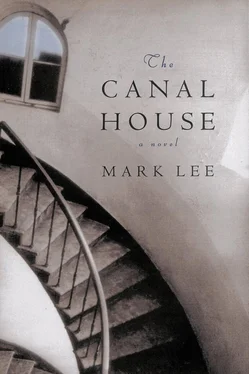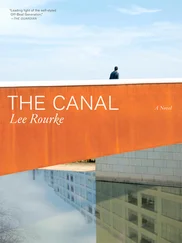“Lot of jumped-up crazies,” said a journalist from New Zealand. “Can’t have the bloody country so they’re going to burn it down.”
Daniel stood on the edge of the roof and watched the destruction. It bothered me that he had given away his food and water at the church. In Africa, he’d been selfish and single-minded, but I trusted his instincts. Nowadays he seemed a lot more vulnerable. I wondered if I should have left him at the convent garden back in Rome.
“Look at that fire! The world’s burning down!” a Portuguese journalist said. Something exploded inside one of the houses and sparks rose up to the sky. I moved my shoulder when I took out my camera and the cut on my back felt like it was burning, glowing in darkness.
AT DAWN, DANIEL LEFT our hotel room and returned with a pot of tea and two bowls of plain white rice. He prodded me in the ribs and I decided that everything was going to be all right.
“Wake up, Nicky. Time to get going.”
“I’m not asleep. I’m resting my eyes.”
“How was your mattress?”
“Better than the Ruskin.”
He gave me some chopsticks and poured a cup of tea. It was hot and strong and the steam had a flowery scent. “I just hired a driver who says he can find a car.”
“How’d you do that?”
“When everything is falling apart, look for the man wearing a clean shirt. A clean shirt means he’s either disciplined or resourceful.”
“Or maybe he just stole it from a laundry.”
“That’s the resourceful part.”
Daniel replaced my bandage and we left the hotel. The fires had died out in the center of Dili, but a charred smell still lingered in the air. We saw several other journalists on the street, then Tristram Müller ambled out of the hotel holding a coconut.
“Nicky! Daniel! Did you stay here last night?”
“Up on the first floor.”
“I’ve got a room on the ground floor, near the back. I paid some extra money and got a chair.” Tristram held up the coconut. “You’re Americans. You rope cows and slaughter Indians. So how do you crack this open without a hammer?”
“Go to one of these churches and drop it off the bell tower.”
“That’s way too much effort.” Tristram looked exasperated. “What this town needs is some Chinese merchants. If the Chinese had stayed around I bet we could buy a bottle of cold beer and a decent meal.”
Daniel glanced up and down the street, looking for the man with the clean shirt and a car. “What’s the latest rumor?”
“Some militiamen chopped off the head of a priest and impaled it on a stick in the middle of the village.” Tristram gave us a sly smile. “Of course, no one knows the location of the village or the name of the priest or even if it really happened.”
Tristram waddled off to crack his coconut and we remained outside the hotel. While we waited for the car, I watched how the rumor of the headless priest gained substance and then an air of reality. Journalists told each other the story, then scurried around like ants that had just heard about a crumb of blueberry pie. People insisted that a Japanese TV crew had actually photographed this incident, but then we were told, no, a Swedish cameraman filmed it. The Swedes announced that no one had actually seen the head, but they were going to the village in southwest Dili later that day.
There was great excitement when a fourteen-year-old boy named José appeared and offered to sell directions to the dead priest for ten Australian dollars. Daniel watched this transaction for a few minutes, then took the boy’s hand and made him touch the crucifix hanging from his neck. “ Não há a cabeça ,” Daniel whispered in Portuguese.
José panicked for a moment, then relaxed like a witness who was finally allowed to tell the truth. “ É verdade, senhor . No head.”
Daniel gave the boy three cigarettes as a tip and walked over to where I was sitting.
“Waste of time?” I asked.
“You noticed Tristram didn’t go for it. Usually the rumors are about a crucified priest. This was a new variation.”
Most of the other journalists were gone when a Honda Accord with blown-out windows turned the corner. It stopped a few feet away from us and the driver got out. Silverio Fernandes was a thin, jittery young man with oily hair. He didn’t look very reliable, but he did have a clean shirt.
“Good morning, gentlemens. Please to be in my automobile.”
We pried open the door and got into the backseat of the sedan. Someone with an automatic weapon had fired into the vehicle. It looked like a madman had attacked the upholstery with a hatchet and the back door on the left side was tied to the doorframe with rope and twisted wire. Dried blood covered the driver’s seat and the rubber mat under the gas pedal. The blood was dark red, like rust, and little specks of it clung to the back of Silverio’s jeans.
“Where are we going?” I asked Daniel.
“A suburb called Becora. It’s a pro-independence neighborhood where there’s been a lot of fighting.”
Silverio got back into the car and gave us a big smile. “Gentlemens, I am ready to serve you.”
“ Leve-me Becora ,” Daniel said in Portuguese and pulled out a wad of Australian dollars.
Silverio shook his head rapidly. “No. No. This is muito difίcil .”
The money disappeared back into Daniel’s pocket and he forced open the door. “Get out of the car, Nicky. We’re done with Mr. Fernandes.”
“ Com certeza , I can take you there. I only say it is difίcil .”
“It’s always difficult,” I said. The car jerked forward, then shivered and backfired up the street. Although the Honda was wrecked, Silverio acted like he had just bought it from a car dealer. Whenever we encountered a burned-out vehicle or a pile of rubble, he hit the turn signal and made a wide curve around the obstacle.
I had both my cameras out, looking for a shot, and I focused on the few things that had survived the general destruction. A small red flower. A jacaranda tree. Two straight-back chairs and a white refrigerator.
We drove up into the hills that surrounded the city and found the smoking ruins of hundreds of houses. A few old women were dragging away sheets of collapsed roofing, then searching through the ashes. They watched us warily, like the deer you might encounter on a country road. Silverio announced that we were in Becora and Daniel told him to stop. We got out, walked through someone’s backyard and approached a bare-chested man.
“ Olá, senhor .”
The man had come down from the hills to look for his lost daughter, Gabriela. “Are you Australians?” he asked in Portuguese. “Are you from the United Nations?” Trying to act invisible, I focused on his thin, exhausted face. “I think they killed her,” he told us. “But I pray.”
Silverio looked nervous. He combed his sideburns, then glanced up and down the streets. “Gentlemens,” he pleaded. “ Se faz favor . We go back now.”
“ Mas lento ,” Daniel said. “I need at least one more interview.”
We got back into the car. When we drove past a house that was still burning, I asked Silverio to stop for a minute. A framed photograph of some saint with rays coming out of her head was still hanging on a scorched wall. Nice colors, I thought. Half a page in the magazine. I jumped out and crouched down in the ashes for a shot.
A dump truck came up the hill, its gears grinding. Men wearing red-and-white headbands stood on the truck bed and gripped the frame. When they saw us they shouted and began firing their assault rifles. It didn’t sound dangerous, more like the crackling sound of a string of firecrackers, until a bullet ricocheted off the Honda’s back bumper. Silverio leaped out of the car and sprinted across the road as Daniel ran toward me.
Читать дальше












